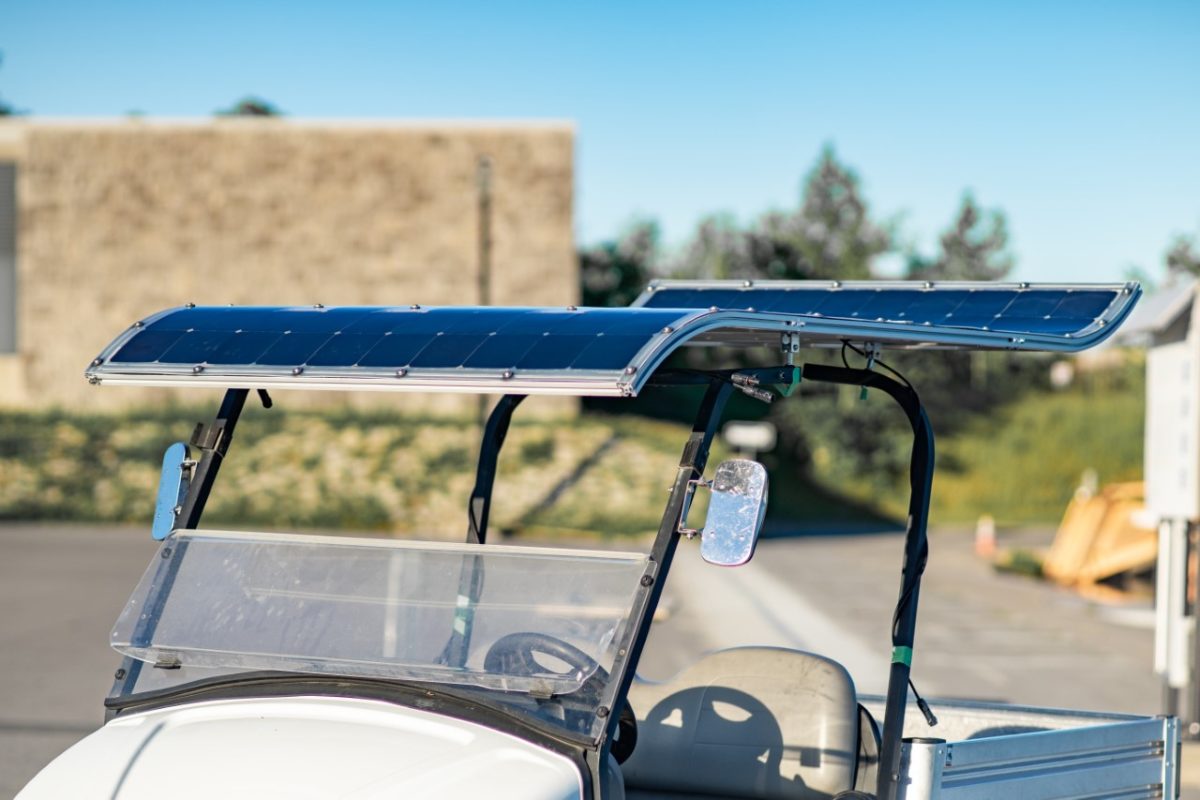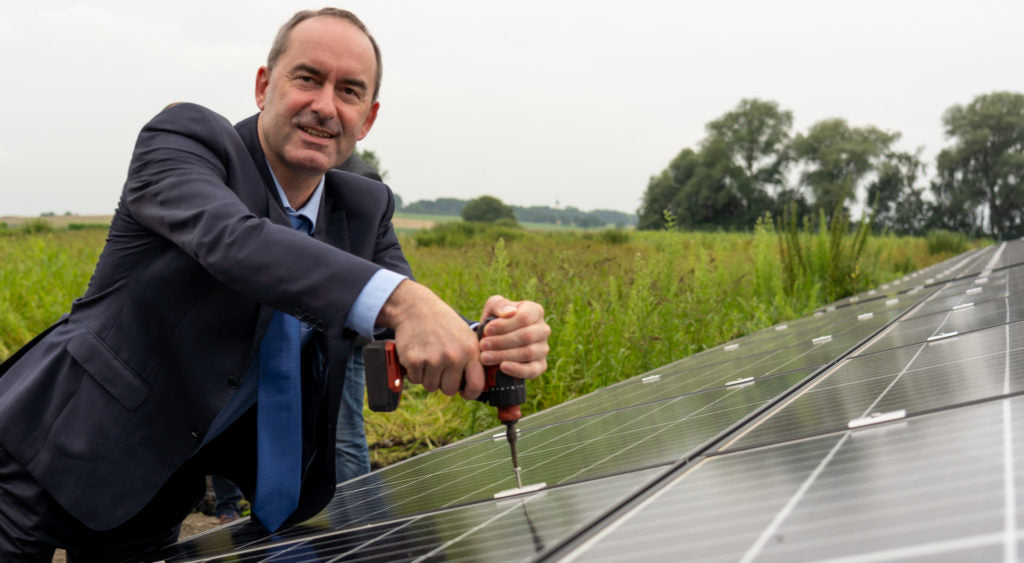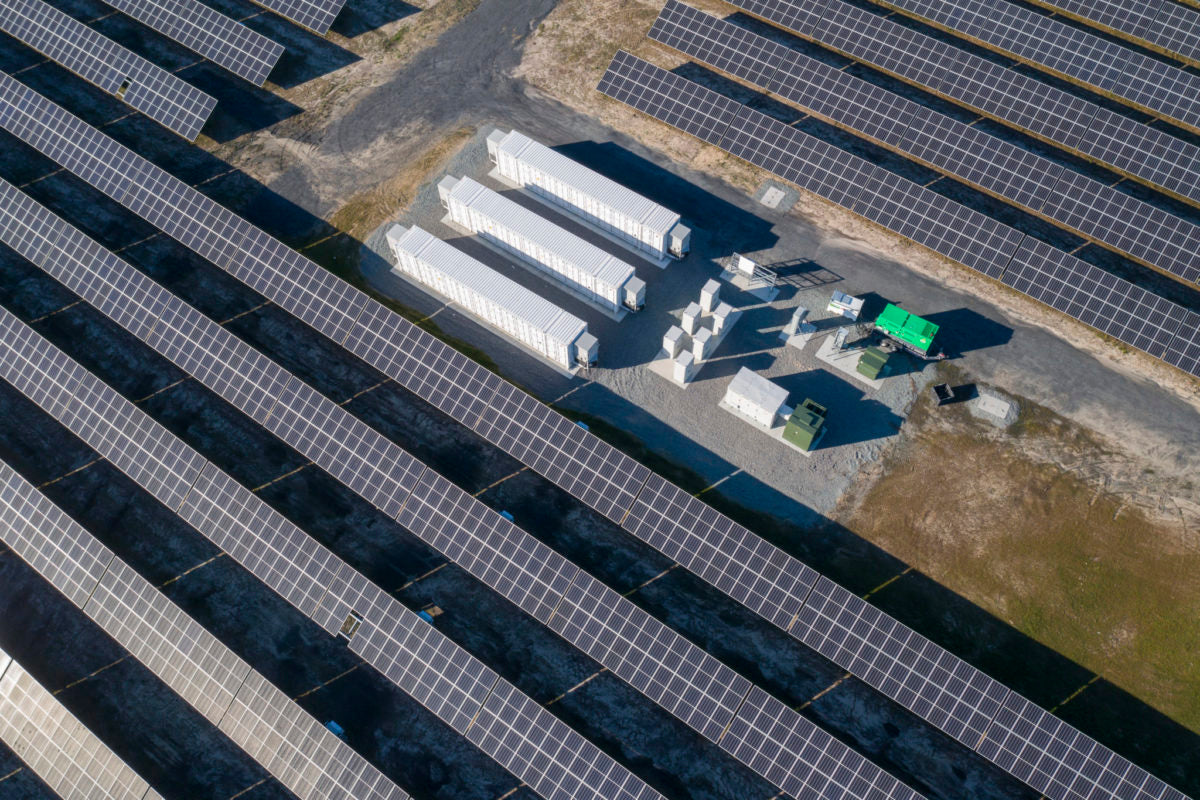https://www.pv-magazine-australia.com/2022/07/27/vehicle-integrated-photovoltaics-for-low-speed-electric-vehicles/

Image: Capsolar
From pv magazine Global
Quebec-based startup Capsolar has developed a solar panel for vehicle-integrated applications.
“The CAPSolar’s SM–550 solar module is capable of maximising the capture of solar energy in a dynamic setting by reducing the impact of shading on its performance while being as robust and lightweight as possible when fitted on our structure which can fit any type of low-speed electric vehicle,” the company’s CEO, Samy Benhamza, told pv magazine.
The module has a size of 2,100 mm x 1,320 mm x 25 mm and weighs in at 30 kg. It has a power conversion efficiency of 21.3%, an open-circuit voltage of 108.0 V, a short-circuit current of 6.4 A, and a fill factor of 76%. It can be operated with a maximum temperature of 45 C while driving and 55 C when the vehicle is parked.
The panel relies on 24%-efficient solar cells provided by US manufacturer SunPower. It also features an IP67 enclosure and an MPPT buck controller. “The solar panel itself is fully flexible but when mounted on our structure, it conforms to the desired shape and becomes rigid. In its layout, strategically oriented solar cell series help in better managing different incidence angles and combined with multiple bypass diodes, we have an optimal shading management,” Benhamza said.
According to the manufacturer, the panel offers a 70% higher daily energy output at the same power rating as competitor products. The company tested the module in Montreal, Quebec, on a client’s vehicle and claims it achieved a 17% average range extension per day, with a peak of 26% on sunnier days.
“In collaboration with our European strategic partners in Belgium, we have developed a patent-pending, fully modular system that allows us to adapt our panels, just like LEGO, for each type of low-speed electric vehicle with no extra modification and custom work,” Benhamza explained.
Capsolar is currently collecting data to better determine the parameters that have the most impact on the performance of a vehicle–
integrated solar module. “We will then be able to feed this data to the charge controller we are designing and use artificial intelligence to optimize the operating parameters of the MPP–tracking algorithm,” Benhamza concluded.
This content is protected by copyright and may not be reused. If you want to cooperate with us and would like to reuse some of our content, please contact: editors@pv-magazine.com.
<




